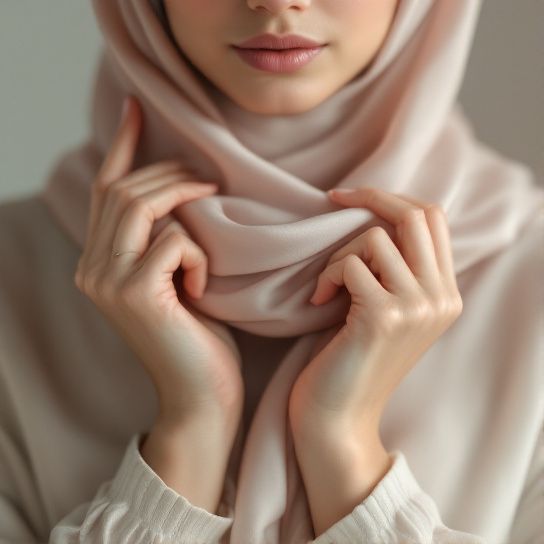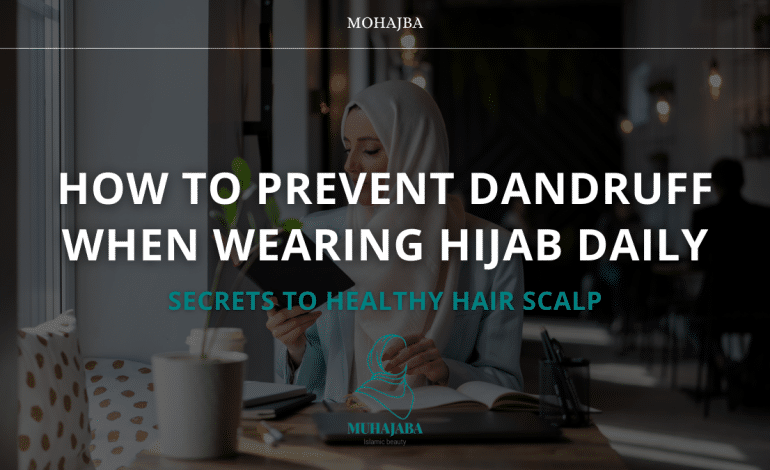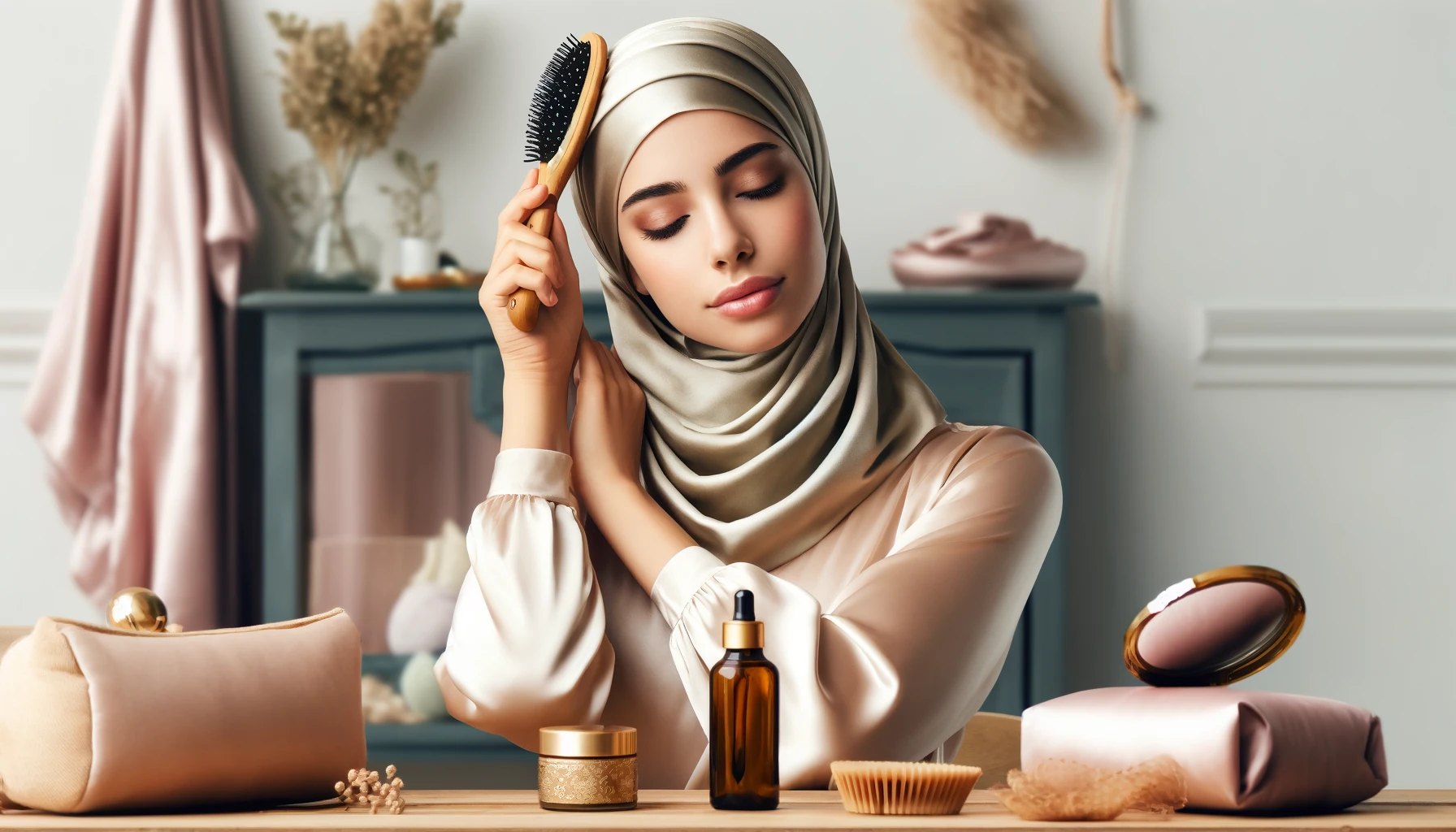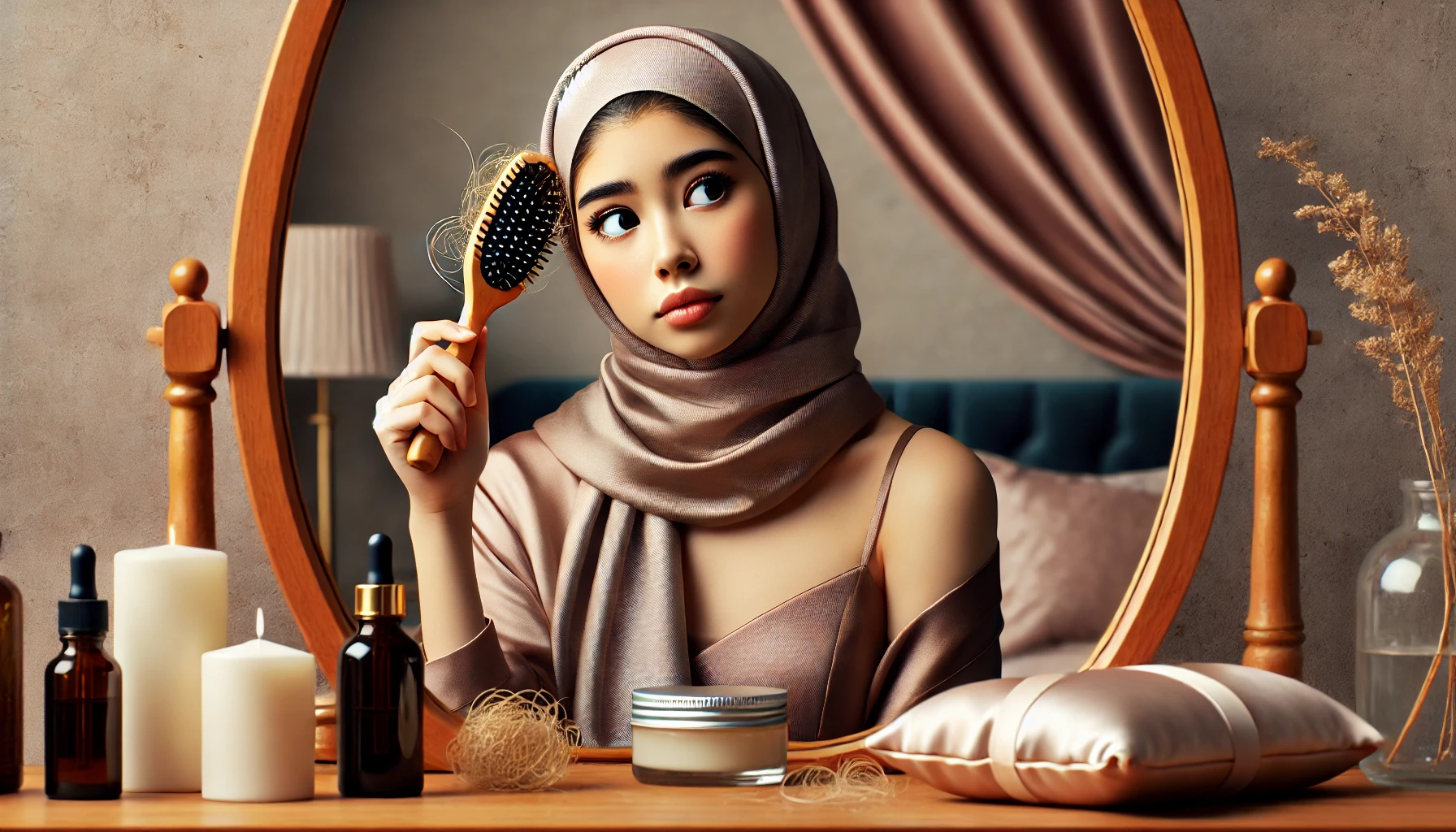How Do Hijabis Deal with Sweat and Hair Odor? Secrets to Stay Fresh All Day

Let’s talk about something no one wants to say out loud — sweat and hair odor under the hijab.
Wearing a hijab for hours, especially in warm weather or after a long day, can sometimes lead to scalp sweat, trapped moisture, and an unpleasant smell. But don’t worry — this doesn’t mean you’re doing something wrong.
It just means your scalp needs a little extra care and ventilation — and we’ve got you covered.
Here’s exactly how hijabis can prevent sweat buildup and hair odor while keeping their hair and scalp healthy and fresh.
💧 Why Hair Odor Happens Under the Hijab
Your scalp is skin — and just like any part of your body, it sweats. Add layers of fabric, heat, and maybe even damp hair, and you’ve got a recipe for:
- Bacterial buildup
- Musty smells
- Itchy or irritated scalp
- Oily hair and dry ends at the same time
But the good news? You can stop all of this with just a few easy tweaks.
💡 Simple Ways Hijabis Can Deal with Sweat & Hair Odor
✅ 1. Always Wear the Hijab on Dry Hair
This is rule #1. Never tie or cover your hair when it’s wet — even slightly damp hair under layers can cause odor and lead to fungus or dandruff.
✅ 2. Use Breathable Underscarves
Avoid synthetic materials that trap heat. Instead, go for:
- Bamboo underscarves (naturally antibacterial + breathable)
- Silk-lined or cotton blends (gentle and sweat-absorbent)
✅ 3. Refresh Your Scalp Midweek
No time to wash your hair? Use:
- Dry shampoo to soak up oil and odor
- A light scalp mist with rose water or tea tree oil
- A DIY aloe vera + lavender water spray to soothe and refresh the scalp
✅ 4. Scalp Cleansing Once a Week
Once a week, cleanse with a sulfate-free shampoo and gently exfoliate the scalp to remove buildup and dead skin cells.
💡 Pro tip: Add a few drops of peppermint or eucalyptus oil to your shampoo for a cooling, odor-fighting cleanse.
✅ 5. Let Your Hair Breathe
At home, remove your hijab and your underscarf. Let your hair fall freely and air out. If possible, sit in front of a fan for a few minutes for a quick scalp refresh.
✅ 6. Essential Oils for Natural Fragrance
Massage a few drops of essential oils into your scalp or ends:
- Lavender (calming and sweet-smelling)
- Tea Tree (fights bacteria + cools the scalp)
- Lemon or rosemary (refreshing and clean)
✅ 7. Wash Your Underscarves Often
Don’t underestimate this! Dirty underscarves = trapped bacteria = unwanted odors. Try to wash your underscarf after every 1–2 wears.
❓ Frequently Asked Questions
Q1: Can hair odor be a sign of a scalp issue?
A: Yes. Persistent odor may be linked to scalp fungus or buildup. If odor continues even with good hygiene, consult a dermatologist.
Q2: How often should I wash my hair if I sweat a lot under the hijab?
A: 1–2 times a week is enough for most, but use dry shampoo or scalp sprays in between if you’re sweating daily.
Q3: Is it safe to spray perfume on my hair or underscarf?
A: Not directly on hair — it can dry it out. Use a hair mist or essential oil blend instead. For your underscarf, a light fabric-safe spray is fine.
✨ Final Thoughts
Wearing the hijab is empowering — but your scalp still deserves love and care. With the right underscarf, simple scalp care steps, and a fresh routine, you can say goodbye to sweat and odor — and hello to all-day freshness and confidence.
📲 Stay Connected
Want more hijabi hair tips, product hacks, and scalp care solutions?
👉 Follow us on social media for daily tips, stories, and tutorials
👉 Visit www.mohajba.com for exclusive hijabi hair care guides, DIYs, and product reviews










